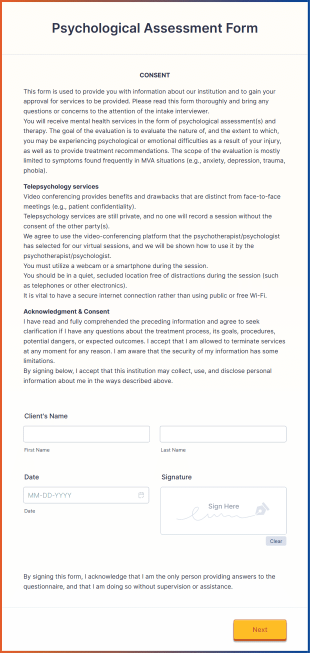Daycare Allergy Form FAQs
1) Why are daycare allergy form templates used?
Daycare allergy form templates are used to document children’s allergies. Childcare providers use this type of form to help avoid exposing children to allergens. These forms can also help providers treat a child if they are accidentally exposed to something they are allergic to.
2) What should be included in a daycare allergy form?
A daycare allergy form should include form fields to collect the following information:
- Name of the child
- Parent or guardian contact information
- Emergency contact information
- Types of allergies the child has
- Symptoms of the allergies
- Treatments or protocols for the allergies
3) When should I use a daycare allergy form template?
Daycare providers should share daycare allergy forms during the enrollment process. Collecting allergy information early on is a good idea if you want your staff to be familiar with each child’s allergies before daycare officially starts.
4) Who can use a daycare allergy form template?
Any daycare provider can create and send a daycare allergy form template, and any parent or guardian can fill it out.
5) How can I create a daycare allergy form with Jotform?
Creating your own daycare allergy form is simple with Jotform’s easy-to-use builder. Start by logging into your Jotform account and clicking Create Form. Choose to start from scratch or use our ready-made daycare allergy form template to get started. You’ll then be taken to the Form Builder where you can drag and drop to add or remove fields, change fonts and colors, upload logos, and more.
Once you’re satisfied with how your daycare allergy form looks, share it with parents or guardians to start collecting signatures. Send it to users via direct link, email, or QR code, or by embedding it directly into your daycare’s online portal or website.
6) What are the benefits of using a daycare allergy form template?
Daycare allergy forms are extremely beneficial for childcare providers. Not only do they help guarantee the safety of each child, but they also give parents peace of mind. This type of form can also be modified to ask for directions on how to administer medication in case of a severe allergic reaction, which is key to ensuring the safety of all children in your care.























